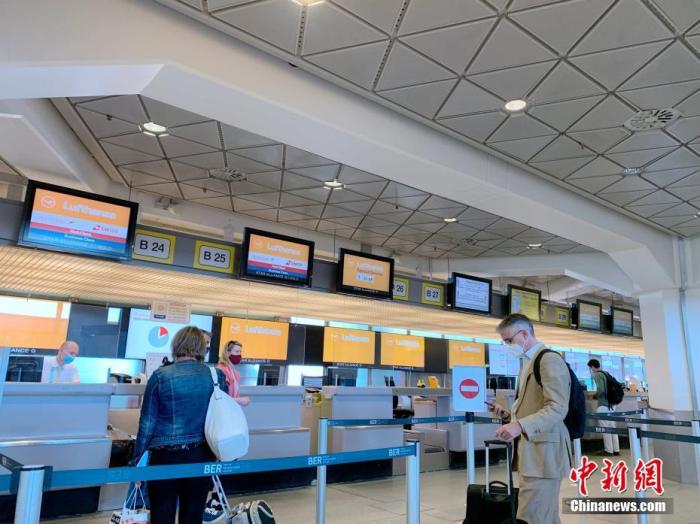China News Service, September 1st. According to Euronet, as reported by Eurolink News Agency, following the recent strong rebound of the new crown epidemic in many European countries, some EU countries have tightened prevention and control measures again to restrict the entry of tourists from areas with high epidemics.
In response, Germany and France jointly appealed to EU member states, hoping to take unified action on the issue of border blockade.
According to reports, in order to control the spread of the new crown epidemic, many European countries have recently begun to classify epidemic "dangerous countries" and regions, and each classifies the danger levels of other countries by color, and implements non-equal restrictive measures.
The picture shows the Tegel Airport in Berlin, Germany during the epidemic.
Photo by China News Agency reporter Peng Dawei
After the UK took the lead in classifying Spain as a "dangerous country," it has now classified France, Belgium, Switzerland and other countries as entry isolation countries.
Following the United Kingdom, Croatia announced a similar border epidemic prevention management policy.
After that, many European countries began to restrict British tourists with the same measures.
Recently, the German travel advice has listed parts of Belgium, most of Spain, Paris, and Marseille as dangerous areas.
Belgium unilaterally lists certain areas such as Paris, Marseille, France as red danger zones; Hungary announced that it will close its borders to passengers other than residents of the country from September 1.
Although Hungary has repeatedly stated that the country is a green zone, some EU countries have listed Hungary as a red zone.
Italy has classified Spain, Croatia, Greece, Malta and other countries as dangerous areas. Tourists from these countries must undergo virus screening when entering.
In order to prevent the EU border management from falling into a chaotic situation similar to the first wave of the epidemic, Germany and France have proposed to the EU and called on EU member states to take unified actions to formulate unified border management standards and travel recommendations.
The European Commission for Science is expected to coordinate member states in the near future to negotiate and promulgate unified travel advice and border control policies.
(Boyuan)

